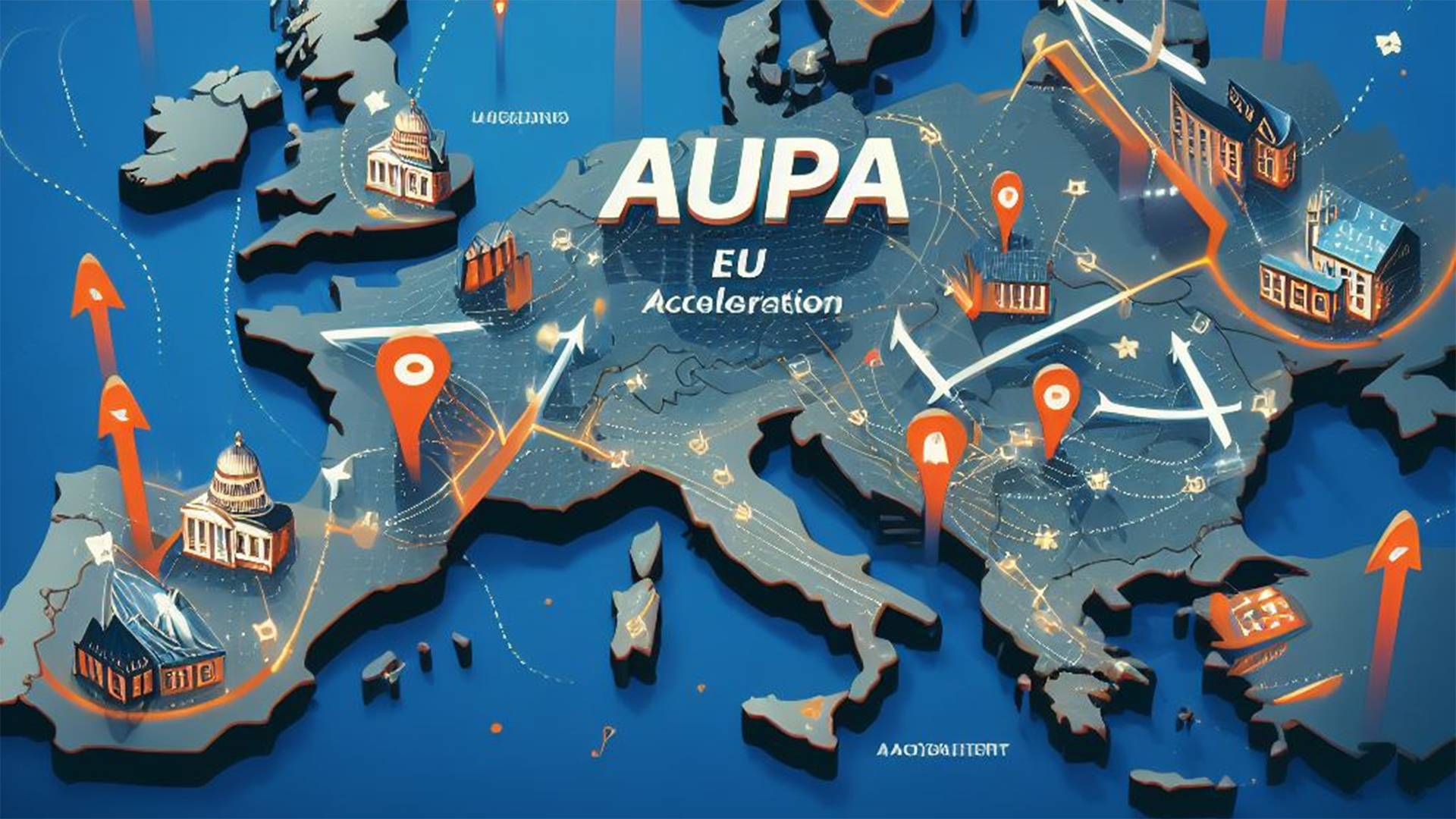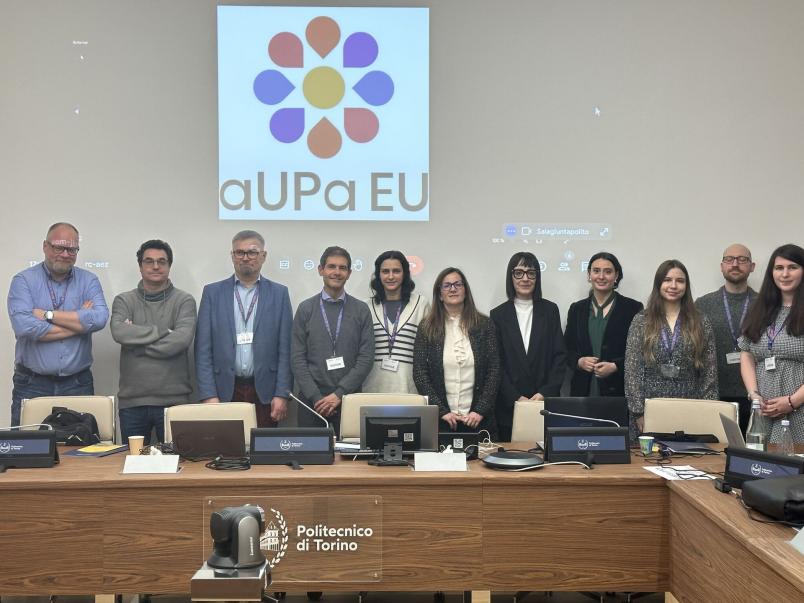
An introduction to the aUPaEU project

“Presenting the concept and the implementation of the Agora” is the title of the first workshop organised by aUPaEU (A University Partnership for Acceleration of European Universities. The project, a collaboration between universities of the European Alliance Unite!, of which Politecnico is a member, and ones that are part of the EPiCUR network, was launched in January 2023 and aims to accelerate institutional transformation in higher education institutions.
On the 26th of January Politecnico hosted a day dedicated to the General Assembly of the project, which was followed by a workshop to present the work done so far and to engage in meaningful discussions for the future development of Agoras with an audience of experts in higher education, acceleration services and technical staff.
Jesus Alcober, the Project Coordinator, opened the workshop by presenting the project's cornerstone: Agoras. These digital platforms provide acceleration services facilitating access, guidance, knowledge sharing and support to expedite HEIs’ efforts towards institutional transformation and innovation.
Next, he unveiled a preliminary catalogue of acceleration services, first of which providing tailored Agoras to higher education institutions and alliances. This catalogue also includes research infrastructures, events, conferences and workshops, support in accessing grants and funding, coaching and support services, investment strategy development, stakeholder management and showcases.
This was followed by presentations from Work Package leaders Michael Anger, Jacek Marciniak and Alessandra Colombelli, the latter a Professor at Politecnico, covering the topics of best practices, the integration of existing data sources, the sustainability of the Agoras, and planned tests with user groups.
An interactive discussion session led by WP leader Cristina Marullo engaged the large audience of over 90 people, from 16 countries, in an exchange of ideas revolving around Agoras’ functionalities, the added value of their acceleration services, and insights into identifying potential barriers to their optimal use.